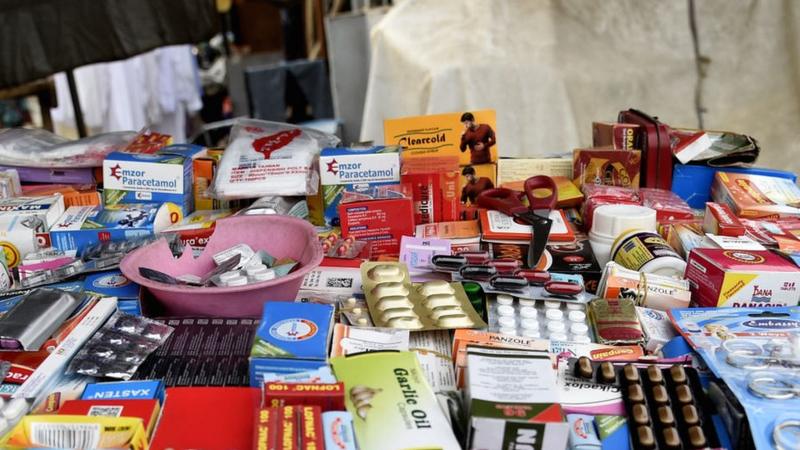Described as dangerous and considered one of the major causes of death in the world and in sub-Saharan Africa in particular where their negative impact on the growth of local economies is significant, medicines of dubious origins are health solutions offered by hands experts or not, and adopted by consumers attracted by anything that which fits the level of their wallet.
This satisfactory situation for some is nevertheless to be deplored because the pretext of cost is inappropriate when it comes to favouring quality treatment which is not limited only to providing satisfaction to patients and sellers but to an entire chain of namely: the patient, nursing staff, pharmacies, sellers, resellers, buyers and public authorities.
The consumer clings to what immediately relieves him while being aware of the potential danger of drugs of dubious origin. The responsibility he is called upon to demonstrate to help stop this phenomenon boils down to putting everything on the backs of the public authorities who, according to him, would not do their job well because if that were the case, the points of sale of medicines would not proliferate in the streets. But if the eradication of all points of sale of illicit medicines depends solely on political will, such an initiative must take into account the context of precariousness in which Cameroonians live so as not to further bog down a social malaise which justifies the proliferation of these points of sale.
On the occasion of the world day against counterfeit medicines on October 12, 2023, the Minister of Public Health of Cameroon made a preventive trip to the field not to find out what he already knew, but to remind rather to his compatriots who have chosen to meet their needs by selling drugs clandestinely that it would be preferable for them to find another way to earn their living.
Also read : Medicinal product of the street : a confusing noun!
This preventive reaction which respects everyone's choice while requiring a greater sense of responsibility on the part of these sellers and resellers is justified by the fact that medicines of dubious origins or those sold in unauthorized points of sale are dangerous for human health and the economy of a country. And it's not just words. The numbers speak for themselves. In Africa, these drugs cause the death of more than one hundred thousand people per year.
Anyone who consumes medicines originating from illegal manufacturing and marketing runs the risk of developing cancer or poisoning among many other health problems.
On the economic front, according to the Minister of Public Health, Cameroon would lose nearly 33 billion CFA francs per year because of the negative impact of these illicit drug marketing networks.
But despite these preventive measures as a prelude to strong interventions during which several tons of counterfeits drugs are sometimes destroyed, unauthorized sales outlets continue to pop up in the streets to the great contempt of some and the great joy of others.
The situation is so complex that forceful intervention without prevention would be inhumane. It is so bad that a rapid eviction without proposing alternatives for these small traders would be a way for the State to fail in one of its obligations, namely to contribute to the well-being of Cameroonians by offering them means concrete means of providing for their needs or earning an honest living. Subcontracting in the sale of pharmaceutical products could respond to this concern because the illicit sale of medicines in unapproved points of sale responds to the demand of a consumer who has adjusted to the laxity of public authorities and is making the fight against fake medicines and unauthorized points of sale a matter of the competent authorities and not that of consumers.
This trend could be reversed if the government involved these sellers in the fight against medicines of dubious origins and fraudulent points of sale by regularizing not the sale of counterfeit medicines but rather those which do not suffer from any dispute over the point of view of quality.
Not everything sold in unauthorized points of sale is necessarily bad. There are some who leave the legal circuit to find themselves in unauthorized points of sale following a change of treatment on the advice of a doctor for another more effective one, or because an individual has chosen to sell medicines of quality in a private property or an unauthorized point of sale.
Self-medication can be permitted as a preventive measure while respecting the legal circuit for marketing medicines thanks to a policy of reinforced valorisation and proximity of generic medicines not only to raise awareness on the dangers of consuming medicines including conservation and marketing does not meet international standards, but also help those who have chosen to sell medicines outside pharmacies to continue in their activity while respecting the required standards.
English|French

